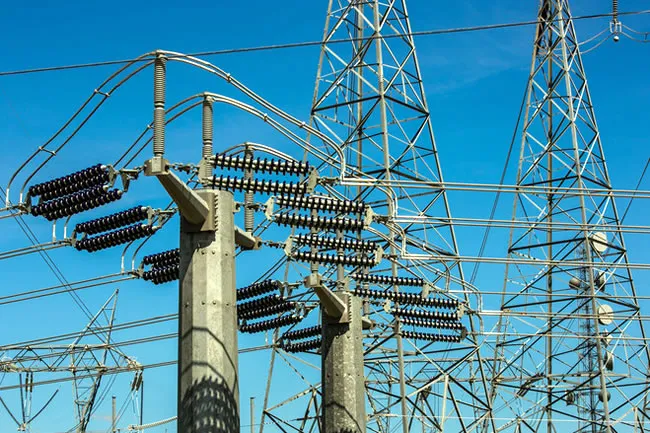In a significant disruption to Nigeria’s power supply, the Transmission Company of Nigeria (TCN) has reported a substantial power grid collapse, resulting in a 165-megawatt (MW) load loss. The incident, triggered by a severe windy rainfall, led to the collapse of three crucial transmission towers along the Ikeja West-Osogbo 330kV line.
The event, which occurred on Wednesday, April 2, 2025, at approximately 9:22 pm, has raised concerns about the resilience of Nigeria’s aging energy infrastructure. According to a statement released by Ndidi Mbah, TCN’s General Manager of Public Affairs, the point of failure was located about 14.9 kilometers from the Ikeja-West transmission substation.
“The Transmission Company of Nigeria announces that on Wednesday, April 2, 2025, at approximately 9:22 pm, the Ikeja-West/Osogbo 330 kV line tripped at a distance of about 14.9 km from Ikeja-West Transmission Substation. The incident occurred during windy rainfall, resulting in a load loss of 165 MW,” Mbah stated.
Further investigation revealed that Tower 528 suffered the most severe damage, collapsing after a trailer truck impacted detached conductors from Tower 527. This cascading failure also affected Towers 526 and 524, compounding the severity of the incident.
The immediate impact of this power grid collapse has been felt by distribution companies (DISCOs) serving Ikeja, Eko, and Ibadan. These regions are now grappling with potential electricity shortages as TCN works to restore the affected lines.
Read Also: Grid Collapse Plunges Nigeria Back into Darkness
“Our engineers are working diligently to repair the affected towers and ensure normal bulk power supply to Ikeja, Eko, and Ibadan DISCOs. The TCN remains committed to providing efficient and reliable transmission of bulk electricity nationwide,” Mbah assured in the statement.
While TCN has diverted the 165 MW load loss through alternative lines to minimize disruptions, the incident highlights the vulnerability of the nation’s power infrastructure to adverse weather conditions and external factors such as vehicular accidents.
As someone who has followed the fluctuations of Nigeria’s energy sector for years, I understand the frustration this instability can cause. The implications extend beyond mere inconvenience; consistent power supply is essential for economic activity, healthcare, and daily living.
The repair efforts are underway, but this event serves as a stark reminder of the urgent need for investment in modernizing and strengthening Nigeria’s power transmission network. Ensuring grid stability is crucial for sustainable development and the well-being of millions of Nigerians.







